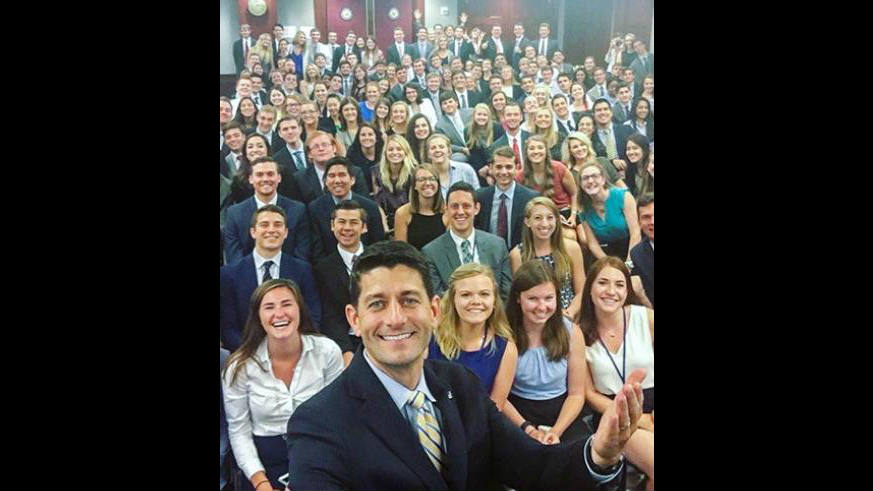Have white people lost their minds? (I say this as a white woman.) According to a poll released on Tuesday, a majority of white people say discrimination against them is a real thing in America.
While individuals can be discriminated against, racism against white people is not a systemic problem. While 55 percent of white Americans believe anti-white discrimination exists, there are socio-economic factors that should be considered.
Let’s break this down…
Discrimination against whites?
More than half of whites —55 percent —surveyed said they have faced employment, education or other discrimination, according to a poll from NPR, the Robert Wood Johnson Foundation and the Harvard T.H. Chan School of Public Health.
“If you apply for a job, they seem to give the blacks the first crack at it,” said 68-year-old Tim Hershman of Akron, Ohio, “and, basically, you know, if you want any help from the government, if you’re white, you don’t get it. If you’re black, you get it.”
People from every racial or ethnic group said they believe their group faces discrimination, NPR reported. Of the white people surveyed, only a small percentage have said they actually faced discrimination. When it comes to other racial or ethnic groups, 84 percent of Americans do believe that discrimination is alive and real.
Let’s break it down even more and look at a few examples…
White people who believe there is anti-white discrimination and say they have experienced it.
“It’s been going on for decades, and it’s been getting worse for whites,” Hershman told NPR, even when faced with data showing white people are better off financially and educationally than minorities.
Hershman was unable to provide an example of discrimination he has personally endured, but he did tell NPR he lost out on a promotion. One of the finalists was a younger African-American, but the job ultimately went to a white person, also younger than Hershman.
White people who believe there is anti-white discrimination, but have not experienced it.
A 50-year-old heavy equipment operator from Maryland — just outside D.C. — made it clear to NPR that he is not comparing the white experience to the African-American experience, but said there are assumptions made about white people based on skin color.
“I think that you pretty much, because you’re white, you’re automatically thrown into that group as being a bigot and a racist and that somehow you perceive yourself as being more superior to everybody else, which is ridiculous,” Musick told NPR. “I’m just a man that happens to have been born white.”
“I don’t know what it feels like to be a black man walking around in the streets, but I do know what it feels like to be pegged, because of how you look, and what people perceive just on sight,” Musick, described by NPR as a man with “the stocky build of a retired NFL lineman and a shaved head under his hard hat,” added.
White people who say discrimination against whites in America does not exist.
“I don’t see how we can be discriminated against when, when we have all the power,” retired community college English teacher Betty Holton of Elkton, Maryland, told NPR with an incredulous chuckle.
“Look at Congress. Look at the Senate. Look at government on every level. Look at the leadership in corporations. Look. Look anywhere.
“The notion that whites are discriminated against just seems incredible to me.”
While there could be discrimination against whites, it is certainly not a systemic problem as it is against African-Americans or other minority status groups in America.
Could anti-white discrimination be based on socio-economic factors rather than race?
The survey found that lower- to moderate- income white Americans were more likely to say that anti-white discrimination exists and they have experienced it. This has been looked at as a possible reason Trump took the Oval Office.
“We’ve long seen a partisan divide with Democrats more likely to say racial discrimination is that reason blacks can’t get ahead, but that partisan divide is even bigger than it has been in the past,” Jocelyn Kiley, an associate director at Pew Research Center, told NPR. “That’s a point where we do see that partisan divides over issues of race have really increased in recent years.”
Hershman’s view that discrimination against whites exists is something that then-candidate Donald Trump tapped into during the 2016 presidential campaign.
David Cohen, a political scientist at the University of Akron, said that resentment was reinforced in the 2016 election “especially among white, working-class voters lacking a college degree.”
Cohen lives northeastern Ohio, a traditionally Democratic stronghold full of white, working-class union members. Trump easily won Ohio, 52 percent to 44 percent in November.
Cohen pointed out that white voters overall supported Trump just about the same as they did Mitt Romney when he ran four years ago — 58 percent for Trump, 59 percent for Romney.
“I’m not sure that he necessarily created this angst among white voters,” Cohen said, “but [Trump] certainly knew how to take advantage of it.”
NPR, the Robert Wood Johnson Foundation and the Harvard T.H. Chan School of Public Health survey sampled 3,453 adults in the U.S. from Jan. 26 to April 9. Of those, 902 were white.
























